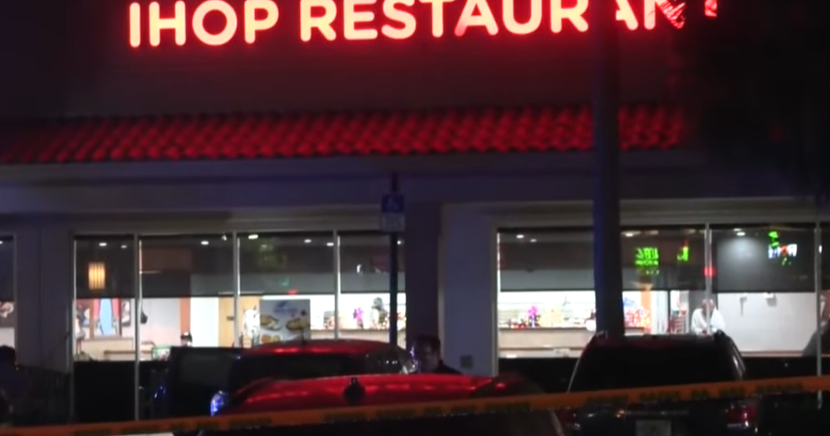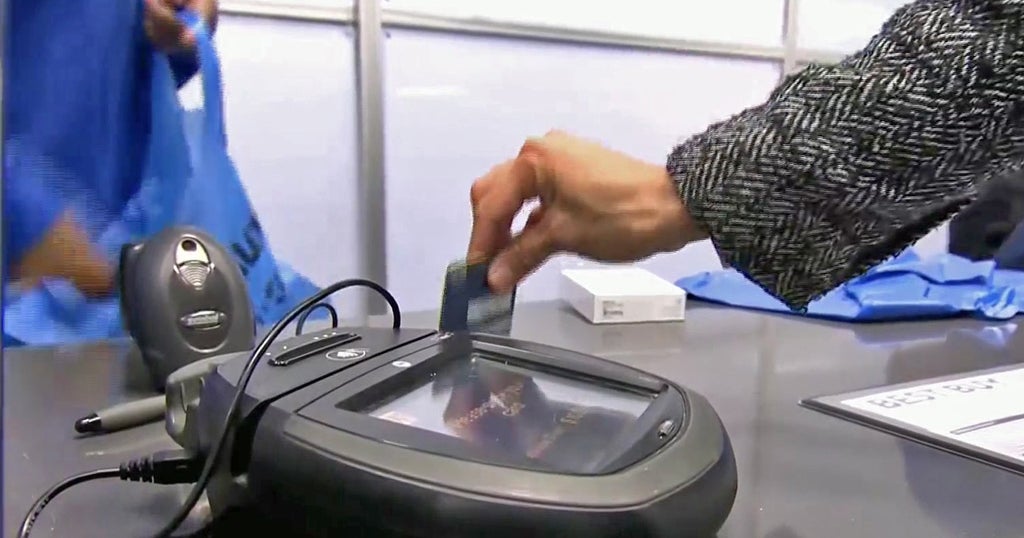Coral Gables Police Chief Ed Hudak: 'We Have To Do Better' To End Police Brutality
MIAMI (CBSMiami) – Coral Gables Police Chief Ed Hudak joined CBS4 News at 7 to discuss the problem of police brutality, joining in prayer with protesters, having an open dialogue with the community and more.
Q: First, what is your reaction to the upgrade of charges against the former officer Derek Chauvin and then the charges of aiding and abetting murder against the other three officers?
A: I mean, the charges that are that we're seeing out of there, you know, is after I would imagine an evaluation. Similar to what we do here in Miami-Dade County where we have an outside person from FDLE that does the investigation of any officer-involved shootings, and then sent to the State Attorney's Office, and those charges are then sent forward. So similar to what our system would be. I would imagine that was what that was. My feelings on it is that's up to the prosecutors on that.
Q: A lot of people are looking at this situation and a lot of folks believe that it's a question of situation of, you know, here we go again. Once again, we're talking about this issue of our police too brutal, especially when it comes to dealing with people in the African American community. So, does there need to be some type of national standard here? What do we do to solve this issue once and for all?
A: Well, I think, Jim, to your point, the issue is going away. Police brutality is something that we are facing across the country. And again, I can speak to South Florida. I mean the Florida police chiefs, as well as the Miami-Dade County Association Chiefs of Police, what everyone was talking about in the country, we all knelt together because it was time to pray. And today we met again to talk about what we need to do better. Now, that being said, I believe, you know, our viewers, our residents are protected by some of the best law enforcement chiefs. And we can do better and we will do better and we're committed. And out of the protest in Coral Gables, we have a meeting this Friday. Again, I made a mistake. When I said to those people, 'You need patience.' Patience, we know is over. And that was insensitive on my part. But we're going to make changes that the executive board met today. You know, when you're with Freddy Ramirez and Jorge Colina, two of the bigger departments, along with Rick Clements, I mean, we all do this together. South Florida has a very good community. In Coral Gables, between the fire chief and the rest of the people, the support that we had that day, we were able to safely hear what people had to say, and we protected those protesters. You know, what I like about what's happening in South Florida is because of the collective efforts of all the police departments through the chiefs, we were able to quell the violence down here and get down to the message that people want answers to. And I think the chiefs association, along with my colleagues, are going to be able to answer those questions. Because it isn't just about brutality, it's about police brutality, and that's our responsibility.
Q: The protests in Coral Gables and the images of officers taking a knee… there are some who say police are doing this for show. What do you say to those people?
A: When we were in the planning stages with this group, who approached us, I mean, I know there was some commentary out there that that we organized the protest, that wasn't the case. You know, when you saw the chiefs kneel down, I will tell you that the idea to pray was my idea. The idea to kneel was Rev. Richardson's idea. And we did and it was spontaneous and it wasn't to make a statement. Anybody who thinks that we have to be violent or we have to out scream each other, that's not the dialogue that we want. A dialogue of changes and we will lay those out. We start again on Friday. You know, we don't have to be violent. We have to understand, we have to confront, you know, the implicit bias that each one of us has. And once we do that, then we can stop the racism. We can stop the racism across the country – police racism, other races, other forms of racism throughout. And I believe that's what we're going to accomplish, because I have the utmost faith in our law enforcement leaders of which I sit with on the on the association.
Q: It seems that there has been historically this recurring issue of some white police officers being too heavy handed with African Americans. Why aren't there more African Americans on police forces? So are there enough minorities involved in law enforcement? Would that help?
A: Well, I think, listen, in some cases you see it work both ways, where the African American officer, you know, maybe more, we say, aggressive with an African American subject. I mean, I don't want to talk statistics. Because if you are abused by a police officer, regardless of that person's color, you see the uniform, you see the abuse. That's what we have to address. The fact that if you feel that crime is, it's 1,000% that's going to affect you, you know. How do we train our people better? What do we look for? And how do we keep that from happening? That is something that plagues all law enforcement official, because we have to find the next generation and we have to do better. So I don't know if there's one silver bullet, if you will, to say how we're going to stop this. The first thing I do know, and I do believe, as do my colleagues and all the departments here, is it has to take a dialogue, a meaningful dialogue. And I applaud South Florida and the way they took control of the violence and the protests and stopped it and continued, both in Fort Lauderdale and here, to start the conversation. The Dade chiefs are committed to that. My colleagues of the other larger departments, we are committed to this talking that we do have these groups. And I do believe South Florida is probably a little ahead of the curve in addressing these issues with our communities, because we've learned from the scars of the past. So we do a much better job in listening to our residents. And I know they're going to be upset about it. However, I think we are on the right track because now the country has started to turn against the violence that is being used against all people, officers, other different communities. And that's something that has to stop.



